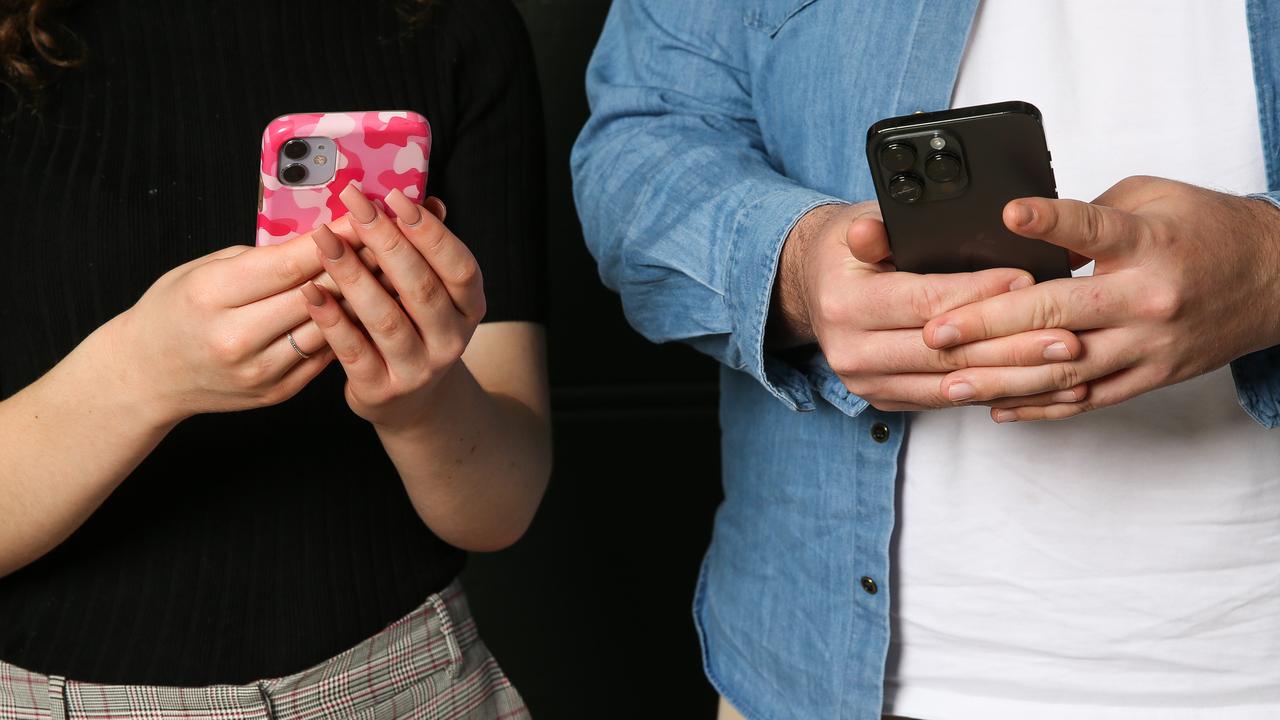Mia Freedman’s son reveals her worst parenting fails
AFTER years of sharing personal stories about her children, Mia Freedman let her son respond. The result was devastating.
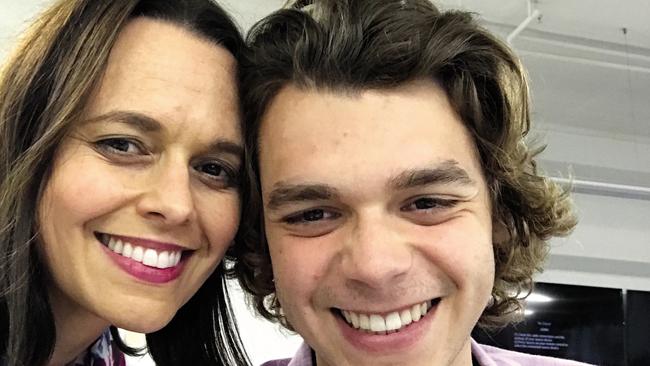
AS a kid, Luca Lavigne would ask his best mate’s mum for a lift to birthday parties, knowing that if he relied on his own mother, he might never get there. Sometimes he wouldn’t have a present to give, and would spend his time there worrying whether anyone would remember to pick him up.
His mother wasn’t neglectful, just chronically disorganised. “She is a walking hurricane of emotions and chaos,” says Lavigne, now 19. “I did feel — not insecure — but like I had to fend for myself.”
The mother in question? Publisher and media personality Mia Freedman. After years of writing about her children, it’s now their turn and so when Freedman invited Lavigne to write a chapter of her latest book, Work Strife Balance, she gave him free rein. She knew it wouldn’t be easy reading — “on some level, every mother knows she is messing up her children in some way” — but the result was, in her words, devastating.
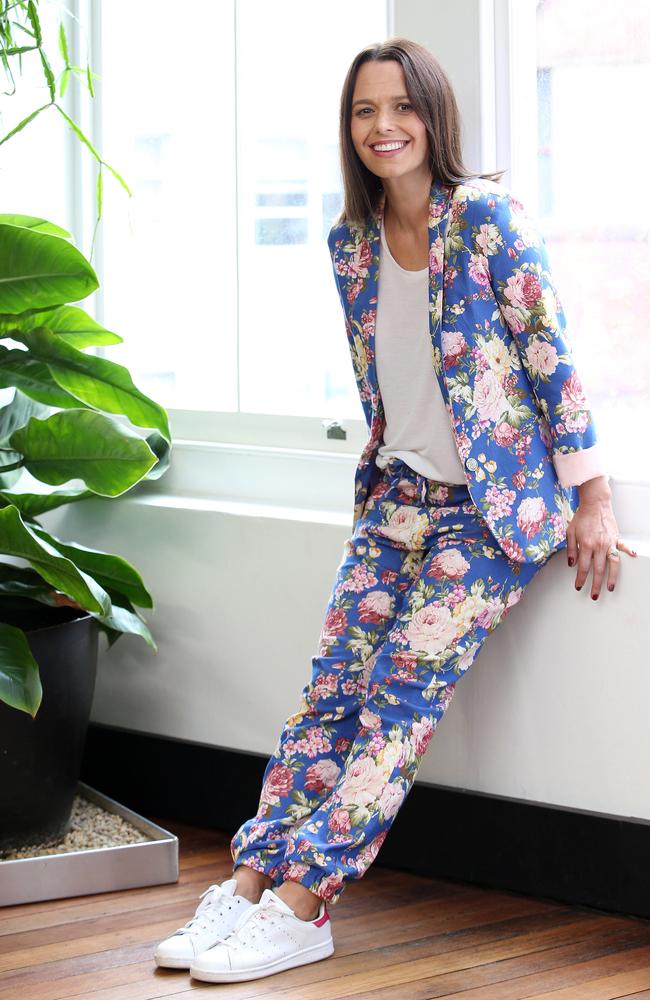
Lavigne’s words were loving, but they were also honest. His mother was brilliant, supportive and inspiring, but she was also chaotic. There were many forgotten pick-ups and hungry lunch times, and then there was the heart-wrenching question Lavigne would ask himself as he got older, when she used his private confidences in online columns: “Can you trust someone with no filter?”
“It was gut-wrenching for me to read that chapter,” Freedman tells Stellar. “The part about how deeply my f*ck-ups impacted on him, and how deeply my being irresponsible or late or careless or distracted, that was devastating, although I kind of knew it.
“I have had a lot of therapy, but nothing has been as confronting for me as reading that chapter.”
There aren’t many women who would be so frank about their parenting regrets, but that kind of raw confession is what Australian women have come to expect from Freedman, whose willingness to lay herself bare hit a vein and became the foundation of her online publishing empire.
The uncensored story of Freedman and Lavigne is compelling reading for any woman who has a son, but there is a confession for everyone in Work Strife Balance, ranging from her marriage difficulties and abortion to her struggles to balance work and family and her inability to decorate birthday cakes.
The part about how deeply my f*ck-ups impacted on him, and how deeply my being irresponsible or late or careless or distracted, that was devastating
Love her or not — and plenty of people don’t — Freedman’s candour has made her one of the most influential voices in the country.
Luca Lavigne is a tall, handsome young man with a mop of brown hair and impeccable manners. He did well academically at Sydney Grammar School, and is such a passionate cook that he spent part of his gap year working as a dish washer for a butcher to learn about cutting meat. These days the aspiring writer studies psychology, and works part-time for his parents.
When sitting down with Stellar in his mother’s office to talk about his chapter in her book, Lavigne chooses his words carefully. If Freedman is missing a filter, as she so often admits, Lavigne has a fully operational one. When asked whether he ever resented his mum for working so much, he pauses.
“I have never resented her,” he says, slowly. “I have always loved her to absolute bits. I have resented her work. I have always known that it’s not something I can change, and that she is incredible in the career that she has forged for herself … but at times I really have felt resentment for the level of commitment in terms of time and emotion that her work has required.”
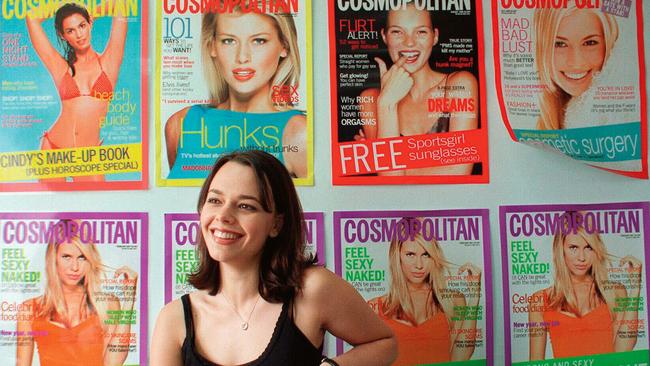
Freedman was 25 when Lavigne was born, and the youngest editor of Cosmopolitan Australia magazine. She had met his father, businessman Jason Lavigne, nine months before she fell pregnant. “It was a happy accident,” says Freedman. Almost a decade later the couple had two more children, Coco, now 11, and Remy, eight.
For two decades, Freedman has been a participant in the conversation about work-life balance, hence the title of her new book (“I wanted to call it Balance Is Bullsh*t, but I knew that would be unlikely to travel well in supermarkets,” she quips). She has lived the tension between work and family, and felt the guilt; during Lavigne’s lifetime, she has edited a major magazine, been a television executive, and founded her publishing business, Mamamia.
For 19 years, Freedman struggled with the chronic guilt that so many working mothers feel. Lavigne’s chapter is a rare insight into the views of the kids over whom they angsted.
“I don’t want people to take the wrong message from my chapter, I don’t want them to think that I’m scarred,” Lavigne says. “She made me the person I am, I have so much love for her, and our relationship to this day is indescribable. I don’t know any mother and son that are as close as we are.”
Lavigne believes some of the issues between them arose because of personality differences, not her work. “We are opposite people,” he says. “I used to be [embarrassed], a lot. I felt like she was kind of the oblivious misbehaving child I was dragging behind me. She’ll walk around and bang into things and bump into people and accidentally push in front of people in a coffee shop. I will say, ‘Mum, the line is here!’”
Lavigne thinks his sister Coco and brother Remy will have an easier ride through childhood because of the lessons their parents learnt with him. “I was the guinea-pig child.” But Freedman is not so sure.
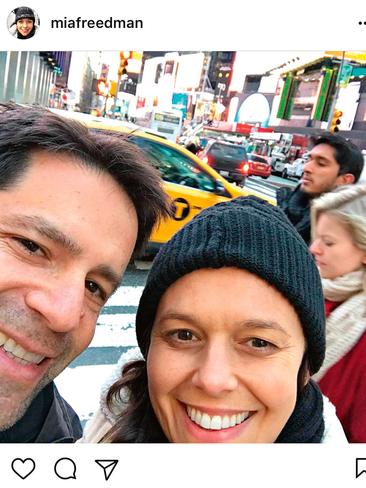
Recently, Freedman’s children met her at the airport after a trip to New York. Her youngest, Remy, told her that he didn’t have lunch for the next day, and she promised to order some online. She forgot.
“That afternoon he didn’t even mention it,” she says. “[Remy] said, ‘Oh, don’t worry Mum, when the lunch boxes came from the tuckshop, I didn’t even look at it, because I knew it wouldn’t be there.’
“And I have learnt nothing, because that’s what Luca would have said. I don’t even know how you would define that — the details and the practicalities, the prioritising of the right things. Those kinds of details I don’t remember, and then part of me thinks it helps them be resilient, because of course he was fine, he went to the tuckshop and they gave him a cheese sandwich.”
Freedman knows that in many ways she is a wonderful mother; she has taught her children to be curious, and empathetic, and able to articulate their feelings. She has schooled them in feminism, shown them the importance of a strong work ethic, and demonstrated the kind of fulfilment that the right job can bring.
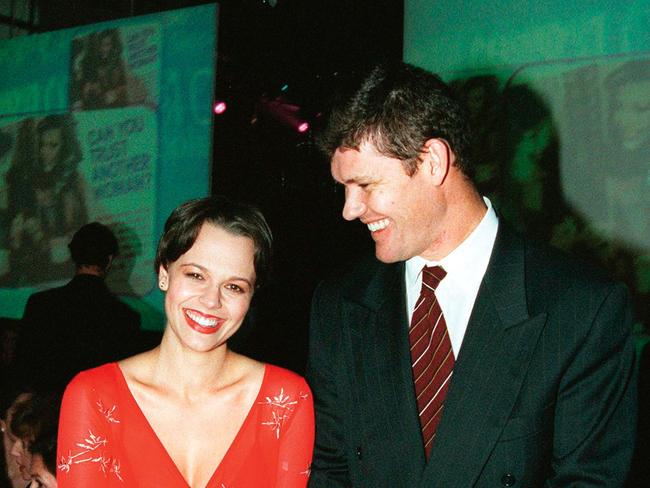
It’s the minutiae of parenthood that she struggles with. The teeth brushing, the shoelace tying. “I am really bad at — and this is a terrible thing to admit — I am probably pretty bad at helping them feel secure in the world,” she tells Stellar.
The good news for Freedman, and perhaps for her fellow working mums too, is that the bond she and Lavigne obviously share would suggest it hasn’t mattered.
“I would say they are unusually close, but in the best possible way,” observes journalist and author Caroline Overington, a close friend of Freedman. “In that chapter, he is able to say all those things because they have a rock-solid relationship.”
A frank account of her mothering skills is not the only subject Freedman lays bare in her book. There’s the time she took a job at the Nine Network, only for it to be an unmitigated and soul-destroying disaster. One chapter imagines how she would tell her daughter about her abortion (a conversation that actually happened before the book was released, and went as predicted). She talks in depth about her anxiety and bulimia (“I was a great vomiter”).
She has an unbelievable, possibly unrivalled ability to tap into what they [women] are thinking and feeling
There must be some parts of Freedman’s life that she has kept out of Work Strife Balance, but they would be few. It’s not quite a manifesto, but it’s life lessons as she has learnt them.
“[The book] is probably the hardest thing I have ever done, the hardest thing in the shortest period of time,” she says. “I feel really nervous about it, really vulnerable, not because of what I have written about, but because I worked really hard on it. I tried really, really, really hard.”
At 45, Freedman still looks like a bohemian pixie. Before we met, I had been told she dressed like a four-year-old, and that proved true; when she greeted me at Mamamia’s bustling headquarters for our interview, she wore a T-shirt, a long skirt, and some oversized, matching costume jewellery that would look ridiculous on most people, but somehow works on her.
She would have been a queen bee at Ascham, the exclusive private girls’ school she attended in the eastern suburbs of Sydney. Her girl squad is even more glamorous these days, and includes the likes of 7.30 presenter Leigh Sales.
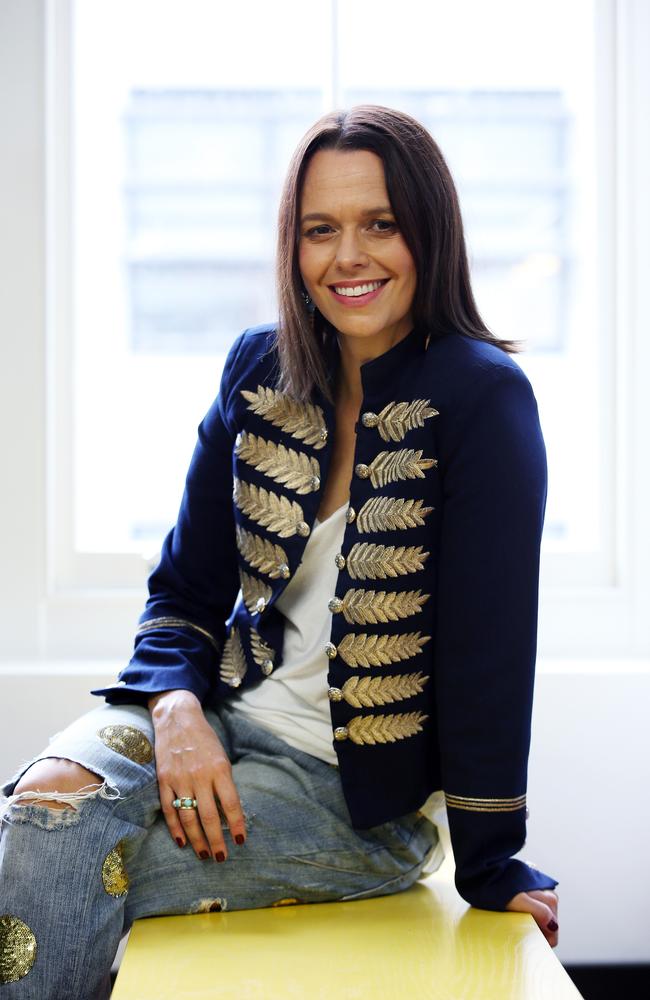
She is adored by her disciples, many of whom began following her career when she edited Dolly and Cosmopolitan, back when those magazines were road maps for womanhood in the way websites are now. “Mia at her best is amazing — she is joyous to be around, funny and charming and delightful,” says one former staff member.
“She has an unbelievable, possibly unrivalled ability to tap into what they [women] are thinking and feeling,” says another one-time employee.
Yet not everyone loves Freedman, and those that don’t are often those same former staffers, some of them who worked for Mamamia as volunteers only to feel used or dropped when they no longer fitted her business purposes. “My impression has been that when you are no longer useful you are discarded,” says one.
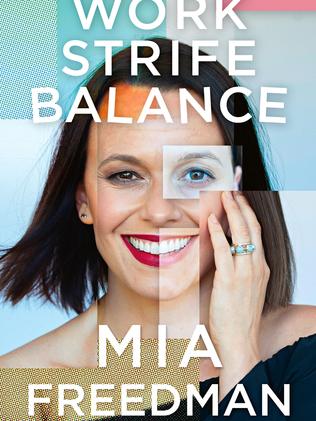
Freedman admits that’s partly true, although there is no ill-will on her part. “Being involved in a start-up, it’s really intimate … there’s a lot of blurring the lines,” she says. “For me, work consumes me, then my family consumes me, so when someone no longer works with me, it’s not that I drop them intentionally, it’s just that I don’t have time to maintain that level of intimacy.
“I feel terrible about that. I often think of people I work with and feel really nostalgic. We went through a lot together, I get why they could feel rejected or sad.”
Another charge often levelled at Freedman is that while she comes across as Everywoman — the core of her success is her ability to empathise with readers — she’s anything but ordinary. Her father, South African immigrant Laurence Freedman, was one of the founders of the Australian funds management industry, and is worth a fortune. Her cousin is Emile Sherman, the Oscar-winning producer of The King’s Speech, and Oscar nominee for Lion.
Critics say that while Freedman built an empire that began in her lounge room, the room was in a house inside an exclusive Sydney suburb that is populated by Old Money families.
This kind of criticism annoys Freedman for two reasons. She counters that she built her business without any investment from her family and maintains that having a successful father has not made her personal challenges any easier.
“I am not pretending to know what it’s like to be disadvantaged or Indigenous or lesbian or trans or Muslim or an immigrant,” she says. “But a lot of things I experience transcend all that. Pregnancy loss. Miscarriage. Anxiety. Infertility. Body issues. Bulimia.
“They are really universal experiences for women. There is not a single thing about my life or experiences that have been remarkable; they are very common, and very ordinary.”
Work Strife Balance by Mia Freedman (Macmillan Australia, $34.99) is out on Wednesday.
Originally published as Mia Freedman’s son reveals her worst parenting fails

